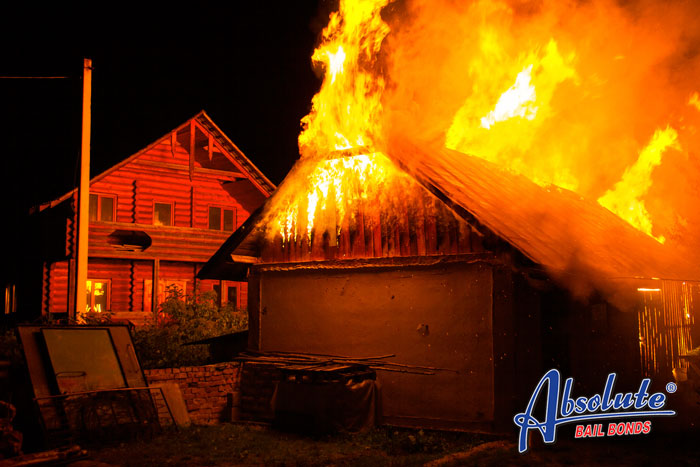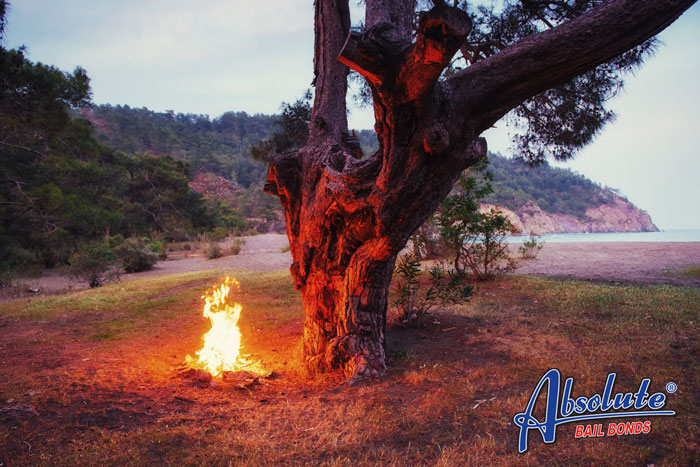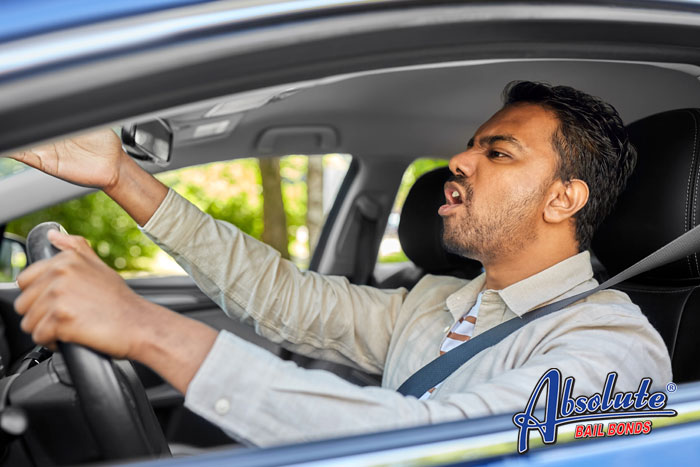
The Difference Between Bench Warrants and Arrest Warrants
Many people don’t realize that bench warrants and arrest warrants are two different things. While both have the same end result, you get arrested, they’re handled in two very different ways.
What is an Arrest Warrant
Before an arrest warrant can be issued, a judge has to sign off on the document. This happens when a new crime has taken place and the police present the judge with enough evidence that you could have been involved. The arrest warrant doesn’t mean that you’re guilty, it simply means that a judge agrees that the police have a legal right to require you to speak to them about the case.
Something that some people don’t realize is if you’re arrested without an arrest warrant that summarizes the crime you’re suspected of or if there is insufficient probable cause to justify the arrest warrant. One of the things a good defense attorney looks at is the probable cause connected to the search warrant. If there wasn’t sufficient evidence, it’s possible they’ll be able to get the arrest warrant dismissed so you can go home.
What is a Bench Warrant?
A bench warrant is another warrant that gives law enforcement the right to arrest you but it’s not the same thing as an arrest warrant. Bench warrants are issued when you do something like fail to appear in court. Most police officers don’t actively go after people who have a bench warrant sworn out against them. A vast majority of people who have bench warrants issued for them are caught during traffic violations.
It’s not a bad idea to contact a criminal defense lawyer and ask for their help with the bench warrant. It’s likely that they will guide you through the process of contacting the court house and rescheduling.
If you suspect that a bench warrant has been issued for you, it’s in your best interest to be proactive about the situation. Rather than spending all of your time looking over your shoulder or stressing that each time you go a few miles over the speed limit you’ll be arrested, you should resolve yourself to settle the matter once and for all.
When dealing with an outstanding warrant, you seek out the services of a good defense attorney. Not only will they be able to confirm if there an outstanding warrant has been issued for you, but they will also help you through the initial booking process, help you decide how to handle bail, and guide you through the hearing.
You won’t believe how much better you feel once you’ve resolved all the legal issues surrounding an outstanding warrant and are able to resume your life without having to worry about being arrested.

Is Skipping School A Crime?
As a parent, you constantly worry about whether you’re raising your child in a way that will enable them to be an independent, self-sufficient, responsible adult. You know that a big part of this process sometimes involves stepping back and letting them do their own things, especially once they become teenagers. It’s likely you understand that part of this means accepting that they will sometimes do things you won’t approve of, including occasionally skipping school.
The problem is that it has recently come to your attention that there are some things your teenage child can do that results in you getting in as much trouble as your child. This new knowledge has you wondering if skipping school is a crime and if it is, can the police come after you?
The way California law is currently set up, all children who are between the ages of six and eighteen are expected to attend public school, private school, or be home-schooled by their parents. Some exceptions are made for children who have severe special needs which make it impossible for them to receive an education.
The failure to attend school or regularly skipping school is a crime in California. It is also a crime that will significantly impact the parents of the truant child.
Just how many absences does it take before your child is considered a truant? Far fewer than you likely think. At this point, the way the law is written, if your child has three or more absences that exceed a period of thirty minutes, they can be considered truant. Your child will become what is considered chronically tardy if they miss five or more days of school.
The good news is that it’s unlikely the cops will knock on your door after your child has been late for school for the third time this year. Even if they skipped an entire day’s worth of school three times, it’s unlikely that you, the parent will face any consequences, though your child will likely get into trouble and have to scurry to make up for the work they missed.
If your child continues to skip school and you are unable to provide an extremely good explanation for their absences (such as severe health problems that are being treated by a doctor and make it impossible for your child to attend school) you will find yourself facing legal consequences. The law usually gets involved when your child misses about 10% of the school year.
The legal consequences parents face when their child routinely skips school are quite severe. The judge will want to take a long look at why your child is skipping school and what steps you’ve taken to discourage the practice. If the court finds that you failed to do everything in your power to encourage your child to attend school, you’ll be fined $500.
The situation goes from bad to worse if it’s determined that not only did you fail to compel your child to attend school but that you actually contributed to their delinquency. In this situation, you could be fined up to $2,000 and/or be sentenced to a full year in jail. In cases that involved children between the grades of kindergarten and eighth grade, the fine can be as large as $2,500.
In California, chronically skipping school is a crime and as a parent, you could face serious consequences because of your child’s decision to skip school.

Drivers License Suspension After DUI
One of the consequences of a California DUI conviction is that you’ll lose your driving privileges. The county courthouse where you were convicted usually doesn’t waste any time when it comes to contacting the DMV and letting them know that your license has been suspended.
For many of us, the loss of our driver’s license is about more than simply a loss of independence. In many cases, especially for those who live in rural areas, it means you can no longer earn an income.
In a perfect world, you would be able to use public transportation in order to get back and forth to your job while you wait for your California driver’s license to be reinstated following your DUI conviction. While this plan works in the larger cities that have buses, in rural areas, public transportation isn’t available and many live too far from the workplace to easily walk to work.
Too often, individuals who have a suspended driver’s license because of a DUI conviction decide to ignore the fact that they’re not legally allowed to drive and continue driving themselves to work and to other places. While this seems like it may not be a bad idea, everything changes when you’re caught driving on a suspended license following a DUI conviction.
Many people assume that driving on a suspended license is a simple traffic violation. They assume that if they’re caught, they’ll get a ticket and have to pay a fine. That’s not the case at all. The truth is that driving on a suspended license in California is a misdemeanor, meaning that if you’re caught and convicted, you’ll have another criminal charge on your record. If you’re convicted, the judge could sentence you to spend anywhere from 10 days to six months in a county jail and order you to pay a fine that’s as large as $1,000.
That’s for the first time you’re convicted for driving with a suspended license following a DUI conviction. The second time you’re caught driving with a suspended license, the potential consequences include a fine as large as $2,000 and up to a full year in a county jail.
If your license has been suspended, it’s in your best interest to convince someone for a lift or to appeal to the court about the possibility of restricted driving privileges which would at least allow you to drive yourself to and from work.

Riding Your Bicycle While Intoxicated in California
One of the issues people run into when they go out for a night of drinking is that while they take steps to make sure they don’t drive while drunk, they fail to realize that there are other things they can get into trouble for while intoxicated.
A perfect example of this is someone who wants to go to the bar and have a few drinks. Not wanting to run the risk of potentially drinking a little more than the law allows for operating a car, they ride their bike to the bar. They figure that way they don’t have to worry about how much alcohol they consume because they’ll simply bike home afterward. What they don’t know is that cycling while intoxicated is a crime in California. While not as bad as getting a DUI, the decision to ride their bike after drinking could still result in them getting arrested and gaining a criminal record.
Biking while under the influence is a violation of California Vehicle Code 21200.5 VC. The code states that: “it is unlawful for any person to ride a bicycle upon a highway while under the influence of an alcoholic beverage or any drug, or under the combined influence of an alcoholic beverage and any drug. Any person arrested for a violation of this section may request to have a chemical test made of the person’s blood, breath, or urine for the purpose of determining the alcoholic or drug content of that person’s blood pursuant to Section 23612, and, if so requested, the arresting officer shall have the test performed.”
The good news is that while cycling while under the influence in California is a misdemeanor and will result in a criminal record, the consequences are nowhere near as severe as they would have been if you’d been caught driving while under the influence. If you’re convicted of cycling while under the influence you’ll be fined $250 (as well as any court costs.)
The main reason California lawmakers decided to crack down on cycling under the influence is safety. Even though you’re on a bike, there’s still a chance that you’re alcohol-impaired brain will cause you to make a mistake that could result in you or someone else being hurt. Examples of this would include riding your bike into the middle of a busy road or knocking pedestrian’s over because you failed to give them a wide berth while passing.
If someone is injured because you were riding your bicycle while you were also under the influence, you could not only face cycling while under the influence charges but also a civil lawsuit.
The smartest thing you can do after you decide to go out for a night of fun and drinking is to make sure you have a ride home. If none of your friends can give you a lift, you should take advantage of a taxi service or ride-share program.

Benefits to Being the Oldest Sibling
People generally think that being the younger sibling is “better” and “more fun.” Parents are more lax with their second child, having raised the first child and seeing the pros and cons to their parenting style. Over-protective on the first child? Ease up a bit on the second. Trust the first child enough? Certainly trust the second. But, there are definitely big pay offs to being the older sibling, and the best thing is getting to be in a role model position.
The older sibling gets the blessing of having the younger one look up to them. It’s imperative for the older sibling to model him or herself in a positive, goal-oriented manner. The parents will be very pleased with their older child. Effectively, the younger child wants to be just as perfect, if not better. He or she will take after the older sibling and they too, will grow up to make their parents extremely proud.
The older sibling also has the ability to steer their younger sibling away from danger and rough obstacles that aren’t necessary. If they see their younger brother or sister acting too close to getting arrested, they have the strongest influence to help turn them around.
This is the best thing about being the older sibling – being the wonderful role model for the younger sibling. Older siblings have that watchful, caring eye. And younger siblings will likely respond a bit better to their older sibling than to their parents because well, they’re parents.
So, for all the older children out there, we’re counting on you to not only be able to keep yourself out of trouble, but to also keep your younger peers who you call brothers and sisters out of jail. We hope you won’t ever need to call us but if you do, for yourself or for a loved one, we at Absolute Bail Bonds will not hesitate to answer your call and help you out. We can bail someone out quickly and quietly.

Stay Safe During Wildfire Season
No matter what part of the state you live in, you should know how to take care of yourself if a wildfire is in your area.
Have an evacuation plan in mind. Wildfires move fast and can change suddenly. Don’t wait until you receive evacuation orders to get things in order. As soon as you know that there is even the slightest chance that a wildfire could pass near you, create an evacuation plan. This plan should map out the best way to leave your neighborhood, already having overnight bags stowed in your vehicle, filling up the car’s gas tank, and having everything needed to move pets at the ready.
Rather than calling the fire department every few minutes, listen to reports on the radio/news program as they come in. When there’s a wildfire in your area, you should always pay attention to official reports. These reports will let you know if there’s a chance that wildfire will come closer and even more importantly, let you know if you need to immediately evacuate.
Charge your phones and make sure you have plenty of working batteries on hand. There is a good chance the power will be turned off so you’ll want to be prepared in advance.
Once you have your own situation in order, connect with family, friends, and neighbors and find out how they are doing. An approaching wildfire is one of those times when everyone needs to pull together and lend a helping hand. Make sure everyone has the ability to evacuate and enough supplies to get them through if they have to stay home while the power is out. If they don’t try to help them find what they need. Offering just a little assistance during this time is the best way to make sure everyone survives.
Once everything is taken care of in your community, reach out to relatives and friends who live in another area. The odds are good that they already know about the wildfire and are concerned about your welfare. Touching base, even if it’s only through a social media post will give them some peace of mind.
Stay safe this wildfire season!

Jaywalking in California
All of us have heard the term jaywalking, but few of us can say exactly what it is. According to the Legal Dictionary, the exact definition of jaywalking is the act of crossing a roadway when it is unlawful to do so. This includes crossing between intersections, as well as crossing at a crosswalk equipped with a signal, without waiting for the proper indication that it is safe to do so.
While jaywalking might not seem like a big deal, you should know that it’s prohibited in California. You can learn more about jaywalking in California by checking out 21955 VC, which makes it very clear that jaywalking is illegal in the state.
The law states that you’re not allowed to walk, “between adjacent intersections controlled by traffic control signal devices or by police officers, pedestrians shall not cross the roadway at any place except in a crosswalk.”
Even though jaywalking is illegal, the good news is that it’s an infraction, not a misdemeanor or felony. Not only won’t it go on a permanent criminal record that can negatively impact your ability to find housing or secure a job, but it also means you don’t have to worry about going to jail. The jaywalking incident will be no worse than getting pulled over for a minor driving mistake.
The bad news is that there are some substantial fines connected to jaywalking in California. Right off the bat, your jaywalking ticket will cost you $196 but there will also be administrative fees, processing fees, and other charges added to the ticket until it’s a substantial amount.
It is also worth noting that if you’re caught jaywalking, the police officer who witnessed the incident will ruin your record. If you have any bench warrants, they’ll have no choice but to arrest you.
The big concern everyone has regarding jaywalking is that someone could get hurt. If you’re decision to jaywalk results in an accident, you’ll likely have to defend yourself in a civil case.

Consequences of Reckless Burning in California
Finally, it’s summertime! Between the increased daylight hours and warmer weather, you’re finally able to do all of your favorite outdoor activities, including having your friends over for a bonfire.
Before you strike a match, you need to make sure you’ve taken the proper steps so that you don’t find yourself dealing with a reckless burning charge.
California’s Penal Code 452 PC exists exclusively for people who either start an illegal fire or who are reckless with fire. The law prohibits you from randomly setting fire to:
- Structures
- Property
- Forest land
The way the law is written, even if you don’t deliberately set fire to something, but simply have a campfire, you can still be charged with being reckless with fire if you fail to follow basic protocols and the fire gets out of control.
Penal Code 452 PC states:
“A person is guilty of unlawfully causing a fire when he recklessly sets fire to or burns or causes to be burned, any structure, forest land or property.
(a) Unlawfully causing a fire that causes great bodily injury is a felony punishable by imprisonment in the state prison for two, four, or six years, or by imprisonment in the county jail for not more than one year, or by a fine, or by both such imprisonment and fine.
(b) Unlawfully causing a fire that causes an inhabited structure or inhabited property to burn is a felony punishable by imprisonment in the state prison for two, three, or four years, or by imprisonment in the county jail for not more than one year, or by a fine, or by both such imprisonment and fine.
(c) Unlawfully causing a fire of a structure or forest land is a felony punishable by imprisonment in the state prison for 16 months, two or three years, or by imprisonment in the county jail for not more than six months, or by a fine, or by both such imprisonment and fine.
(d) Unlawfully causing a fire of property is a misdemeanor. For purposes of this paragraph, unlawfully causing a fire of property does not include one burning or causing to be burned his own personal property unless there is injury to another person or to another person’s structure, forest land or property.
(e) In the case of any person convicted of violating this section while confined in a state prison, prison road camp, prison forestry camp, or other prison camp or prison farm, or while confined in a county jail while serving a term of imprisonment for a felony or misdemeanor conviction, any sentence imposed shall be consecutive to the sentence for which the person was then confined.”
If you’re charged with basic reckless burning of personal property, you’re dealing with a misdemeanor crime. The maximum sentence is 6 months in a county jail and/or a $1,000 fine.
The situation goes from bad to worse if a building or forestland was impacted by your fire. When buildings and forest land are involved, reckless burning in California becomes a wobbler offense. At this point, it’s often referred to as reckless arson.
When you create a forest fire and are only charged with a misdemeanor, the maximum sentence you face is six months in a county jail and/or a $1,000 fine. However if the fire involved an inhabited structure or property, you face a felony charge which carries a sentence of 2, 3, or four years in a state prison.
If someone was injured as a result of your fire, the sentence can include up to six years in a state prison.
If you have any intention of lighting any type of fire this year, it’s in your best interest to be safety conscious and to have all of your safety equipment/tools on hand before you start burning.

Early Warning Signs of Heat Stroke
The longer, warmer days inspire all of us to spend more time outdoors. The problem is that the hotter it gets, the greater the risk of heatstroke.
The problem many people discover is that while there are warning signs that they’re starting to overheat, most either ignore these signs or fail to recognize them for what they are until it’s too late. Make this the year that you sit down and familiarize yourself with the early warning signs of heatstroke. You’ll find that knowing when you’re overheating improves your overall health and how much you enjoy the summer months.
Headaches are often the first sign that you’ve been out in the sun and heat too long. They can also be a sign of dehydration so going indoors and drinking a tall glass of cold water as soon as your head starts to throb can solve both issues before they become serious health concerns.
Keeping a mirror tucked into your pocket while you’re outside isn’t a bad idea. You can use it to keep an eye on your complexion. If you notice you’re becoming flushed, you should either get inside or at least to a nice shady patch so you can cool down a bit.
If your skin feels hot, tight, and dry, you immediately need to take steps to cool down. The fact that you feel hot but aren’t sweating isn’t a good sign. The longer you ignore the state of your skin, the greater the risk of you developing full-blown heat stroke.
Do you feel your pulse pounding in your throat or your heart hammering in your chest? This is often a sign that you’ve developed heatstroke. You need to immediately get out of the sun and start slowly cooling yourself down. If your heart rate doesn’t start to slow down after a few minutes, you’ll want to seek medical assistance.
The hotter you get, the more confused you’ll feel. Things like agitation, sudden irritation, delirium, and slurred speech are signs of advancing heat stroke. Seek medical attention.
Stay cool and healthy this summer!

Avoiding Road Rage in California
Road rage is a serious problem and it doesn’t show signs of getting better. According to the American Automobile Association, approximately 200 murders and 12,000 deaths over seven years were linked to road rage incidents. The NHTSA reported that 66% of traffic fatalities were the direct result of aggressive driving and road rage. The Zebra conducted a study in 2019 that revealed that 82% of drivers committed an act of road rage.
While you may not be able to avoid road rage altogether, there are some things you can do to reduce the number of road rage incidents you’re linked to.
Avoid driving when you’re already on edge.
The more irritated you are when you slide behind the wheel, the greater the odds are that you’ll experience road rage during your commute. Try to calm yourself down before driving. Once you’re on the road, take deep breaths and listen to soothing music or an uplifting podcast.
Give yourself plenty of time to reach your destination. The tighter you are on time, the more recklessly you’ll drive and the more irritated you’ll be at other drivers. Giving yourself a good amount of time to safely reach your destination is one of the best ways to avoid road rage incidents.
Carefully choose your route before you leave. If you know you’re already irritated, choose a route that has the least amount of traffic on it. The fewer cars you encounter on your drive, the more relaxed you’ll be.
Let things go while you’re driving. There will be days when things happen that irritate you. Rather than letting them get under your skin and prompt you into doing something you’ll regret. Take lots of deep breaths, practice defensive driving techniques, and focus on all the good things that are happening around you.
When you encounter an angry driver, don’t engage with them. Stay defensive and let them go ahead of you. Don’t match their aggressive behavior with aggressive moves of your own.

